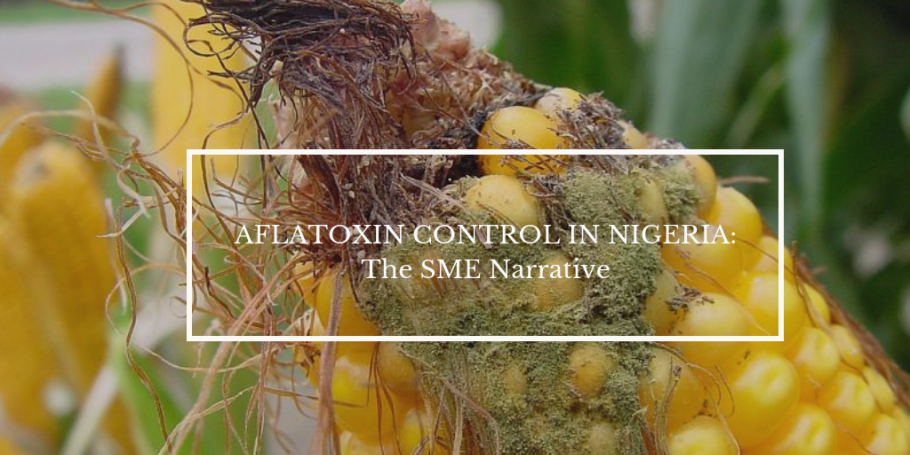Aflatoxin Control in Nigeria: The SME Narrative
Aflatoxins are naturally occurring 'poisons' produced mainly by two fungal species Aspergillus flavus and Aspergillus parasiticus. There are at least 16 different types of aflatoxins produced in nature but the prominent types are aflatoxin B1 (AFB1), aflatoxin B2 (AFB2), aflatoxin G1 and aflatoxin G2. AFB1 is the most frequently detected in foods and has the highest potential to cause harm in humans. The WHO's International Agency for Research on Cancer (IARC) recognized it as class 1 carcinogen [1].
Many of Africa's important staples such as groundnuts, maize, rice, millet, cassava, etc. are susceptible to attack by aflatoxin-producing fungi (APF). Nigeria (latitude 4°N and 40°S) provides a good ecological zone for the growth and proliferation of APF. This accounts, in part, for the unacceptable levels of aflatoxin reported in the country's maize and groundnuts which currently are unable to sell at the EU market.
Government interventions have focused mostly on farmers. However, SMEs (which process most of the foods consumed daily by more than two-third of Nigeria's population) purchase and store the susceptible crops prior to processing. Studies indicate that improper storage increases proliferation of APF. This means that SMEs are critical stakeholders in aflatoxin control. These important stakeholders however, have little or no access to aflatoxin test kits and procedures. This article therefore seeks to create awareness on the prevalence of aflatoxin in Nigeria with particular emphasis on the importance of SMEs in the mitigation strategies. The article also provides analytical test methods for aflatoxin, cost of testing, list of test kits and test kit dealers as well as GMPs for aflatoxin control.
- https://www.ncbi.nlm.nih.gov/pubmed/29794965
Download Full Article



